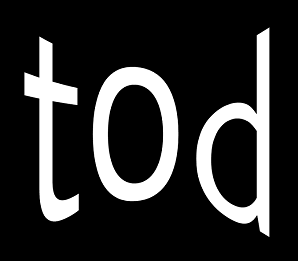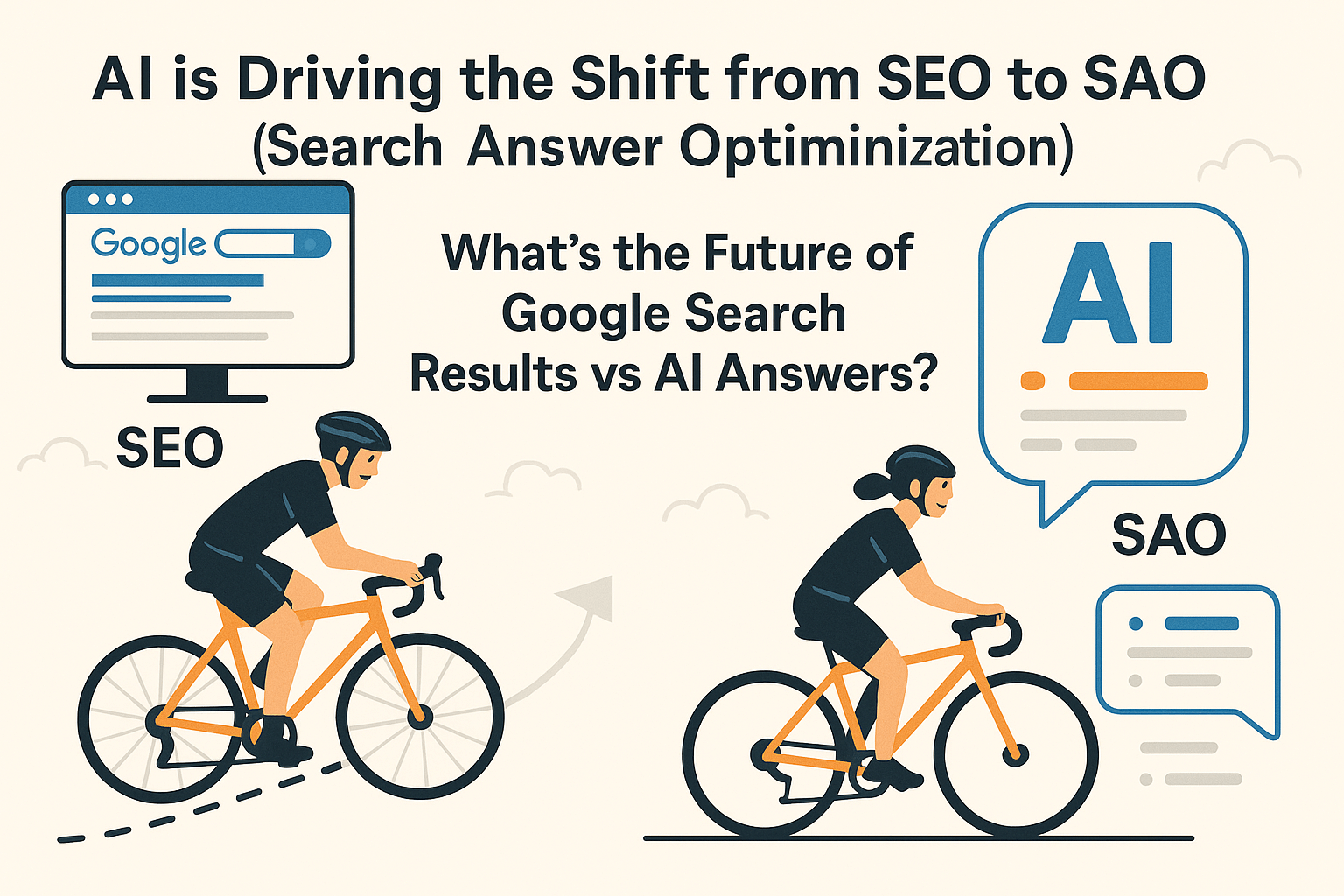Click to Read Sections:
- 1 What’s the Future of Google Search Results vs AI Answers?
What’s the Future of Google Search Results vs AI Answers?
Given all the hype about AI like ChatGPT, Claude, and Meta AI, it’s surprising that Google still has a 89% share of search. But Google is on borrowed time as users adopt AI to answer their questions without searching (and clicking), and their own AI-driven summaries get fewer clicks than traditional search results. With 75% of Google’s revenue driven by search advertising, it must fundamentally change itself or risk losing relevancy, all while keeping it’s user base and advertisers while placating publishers. Meanwhile, ongoing antitrust investigations and potential regulatory actions may impact Google’s market practices and partnerships.
What’s Happening in Web Search?
The introduction of AI tools like ChatGPT and Google’s own AI Overviews is changing how users interact with search engines, possibly reducing reliance on traditional search methods. Google’s market share dipped below 90% in late 2024, a notable event given its dominance over the past decade. Alternative search engines and platforms are gaining traction, offering users different experiences and privacy options. Bing has experienced modest growth, increasing its share from 2.18% in February 2023 to 3.98% in early 2025.
As “Googling” Subsides, SEO Shifts to Answer Optimization
Google has 12–36 months to fully integrate AI without losing its grip on search. The transformation is already underway — and the role of SEO is to pivot now toward:
- Answer optimization
- First-party data dominance
- Direct-to-AI brand embedding
A Survival Strategy for the Transformation of Search
A strategic pivot is essential now that AI-generated results are rapidly reshaping search. The guiding philosophy is “own the answer, be the source, and think beyond blue links”.
Step 1: Adapt Your SEO to AI Overviews
Target “answer-friendly” content formats.
- Use FAQ blocks, concise summaries, and structured data (schema).
- Optimize for entities and facts, not just keywords.
Entities are real-world things such as people, brands, locations, products, concepts, etc. Google’s Knowledge Graph is based on these. The shift from optimizing for keywords to optimizing for entities and facts is a cornerstone of surviving in AI-driven search. AI models like those behind Google’s AI Overviews, ChatGPT, and Perplexity don’t index pages like traditional crawlers — they interpret meaning, identify relationships, and prioritize trusted knowledge.
In old SEO you’d stuff the target keyword phrase into the page title, H1, and subheadings. But now Google parses your content and asks:
- “What entities (i.e., things/concepts) are here?”
- “Is this information accurate, concise, and well-structured?”
- “Does this page factually answer the implied user need?”
How to Optimize for Entities & Facts
1. Use schema markup to declare entities.
- @type: Product, @type: Organization, @type: Person, etc.
- Use JSON-LD schema — Google’s AI parses it directly.
- Pro tip: use sameAs to connect to Wikipedia, Wikidata, LinkedIn, etc.
2. Write in “AI-digestible” formats.
- Define terms clearly:
- “The Trek FX 1 is a hybrid bicycle designed for commuting and light fitness riding. It uses an aluminum frame and 21-speed Shimano Tourney components.”
- Use bullet points and comparison tables — these are often extracted directly by AI summaries.
3. Link to authoritative sources
- Cite Wikipedia, PubMed, manufacturer specs — AI weighs factual anchoring more than keyword density.
4. Cover related entities
- Instead of repeating “best hybrid bikes” 20 times, include:
- Other models (FX 1, Cannondale Quick, Specialized Sirrus)
- Related terms (frame geometry, tire width, drivetrain, urban cycling)
These help AI “understand” that your page is comprehensive and trustworthy within the entity cluster.
5. Claim your brand as an entity
- Create/optimize your Google Knowledge Panel
- Add your brand to Wikidata (this is how Google populates its Knowledge Graph)
Tools to Help Optimize for Entities and Facts
- InLinks – Detects entities on your pages and suggests optimizations.
- Schema Markup Generator – Creates JSON-LD code easily.
- Google’s NLP API Demo – Shows what entities Google detects from your content.
- Wikidata.org – To create and edit public knowledge entries.
How to Write to be quoted by AI.
- Focus on first-party expertise, clear definitions, and authoritativeness. Also, use phrasing like “According to [Your Brand]…” to increase your inclusion in AI summaries.
Dominate niche authority.
- Focus on hyper-specific verticals where you can be the top domain for AI to pull from.
Prioritize first-click-worthy headlines.
- Google still shows links under Overviews — make sure your titles earn that click with curiosity or utility.
Step 2: Diversify Digital Marketing Outside Search
As AI rapidly reshapes how people search, relying solely on Google for digital visibility is no longer sustainable. The future of marketing belongs to those who diversify beyond traditional search into channels AI can’t easily replicate or replace. By building direct relationships through email and SMS, embracing human-centered content on platforms like TikTok and YouTube Shorts, and crafting data-rich assets that feed AI itself, you future-proof your brand. This isn’t just a pivot; it’s a survival play. The strategies below show how to own your audience, tell your story, and thrive in the post-search era. Of course, many of these tactics still require oversight and input of your SEO expert.
Invest in channels AI can’t replace easily.
- Email lists: direct ownership of audience
- SMS marketing: underused and high-converting
- YouTube Shorts + TikTok: high visibility, hard for AI to replicate
Create branded experiences
- Use storytelling and personality — AI won’t “steal” brand tone or emotions as easily.
- People remember people, not just facts.
Become the AI’s data source
- Use open data, API-style content, or expert Q&A pages that bots can ingest directly.
Step 3: Monetize the Shift
As search engines evolve and AI-generated answers reduce organic traffic, the traditional model of creating content solely to attract attention and promote products is losing effectiveness. Organizations that once depended on Google for visibility are now facing diminishing returns. But there’s a viable and urgent shift at hand: turning your content from a marketing expense into a revenue-generating asset.
Content doesn’t just have to support your brand — it can become the product. By developing high-quality informational resources, tools, data sets, templates, expert Q&A libraries, or interactive experiences, companies can license, syndicate, or directly sell their intellectual property to AI engines, aggregators, or end users. This strategy creates new income streams, builds authority, and positions your organization as a foundational knowledge source in your niche.
Instead of racing to stay on Page 1 of Google search results, forward-thinking brands are working to be quoted, cited, or ingested by AI platforms. That’s the new top spot.
Build your own AI-driven tools
- Use LLMs or plugins to create branded tools (e.g., “bike size calculator” or “local ride finder”).
- These tools can attract links, PR, and even licensing deals.
License your content to AI aggregators
- Platforms like Perplexity, Brave, and OpenAI may soon pay for high-quality ingestion rights.
- AI can help convert existing content into JSON format with meta data and ttribution-ready format rendering it ready to license to LLM developers or aggregators.
The next frontier isn’t search engine results; it’s AI answers
The age of chasing blue links is fading. AI is redefining how users discover information, making traditional SEO tactics less effective and more volatile. To stay relevant, brands must shift from optimizing for Google to becoming a source for AI. This means structuring content for machines, not just humans — and building assets that can be embedded, cited, or licensed.
Brands that adapt early by owning their expertise, enriching it with data, and packaging it as product will not only survive this transition — they can monetize it, too.

